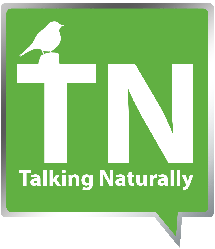Dorset gull colony devastated by illegal egging for restaurants
The eggs of Mediterranean Gulls have been illegally stolen in Poole Harbour to be sold to top restaurants for consumption, despite the practice being highly illegal and with no knowledge as to whether the eggs are safe to eat.

The discovery was made when a local charity called ‘Birds of Poole Harbour’ was carrying out a survey in early May on the non-accessible ‘Gull Islands’ in Poole Harbour, a historic breeding ground for the much commoner Black-headed Gull. The rare Mediterranean Gull, a relatively new coloniser to the islands is a schedule 1 species, meaning it has the highest level of protection under the wildlife and countryside act, making it highly illegal to interfere with their nests or eggs. During the survey it became clear due to the vast number of human footprints and high quantity of empty nests that the islands which have historically held up to 9000 pairs of Black-headed Gull and more recently up to 100 pairs of Mediterranean Gull had falling victim to egging, a practice that sees Black-headed Gull eggs taken for market to sell to top UK restaurants.
Paul Morton from the Birds of Poole Harbour charity stated; “the issue is that both Black-headed Gulls and Mediterranean Gulls look very similar, and their eggs even more so. So when an illegal egger goes out to the islands in the dead of night to harvest the eggs, the nests of the two species are so tightly packed next to one another other that there is absolutely no way of knowing which eggs are being swiped. Also, restaurants will have no idea that they may be selling the eggs of a schedule 1 species, putting them at risk of prosecution”
Black-headed Gull eggs are legally collected under tightly controlled licenses from Natural England at restricted locations around Britain, however there is strictly no egging permitted in Poole Harbour of any sorts. The eggs that are legally taken by licensed collectors end up in some of the countries top restaurants, but with only 18 people in the south of Britain licensed to collect Black-headed Gull eggs, it seems the profession is slowly petering out, therefor creating a potential black market for this product.

Paul Morton added; “there are several causes for alarm here. Firstly, there is absolutely no licensed egging in Poole Harbour, meaning it’s highly illegal to take either Black-headed Gull or Mediterranean Gull eggs from the islands. Secondly, although the selling and eating of Black-headed Gull eggs is well known, there has been zero testing done on Mediterranean Gull eggs from here in the UK to see whether they’re safe for human consumption. Not only that, but if eating establishments are selling eggs labeled as one thing but they’re actually something else, I assume they could be in breach of several trade and standards laws, just look at the whole horse meat scandal.
Paul concluded – “my advice to any restaurant currently selling gull eggs is to ask their supplier if they’re 100% sure of the origin of their eggs and secondly, be very very sure you have no Mediterranean Gull eggs in your possession as this could lead to legal proceedings”
It’s currently not known where the eggs from ‘Gull Islands’ are being sold but the police have been informed to help get investigations underway.
Birds of Poole Harbour
17 May 2016
















